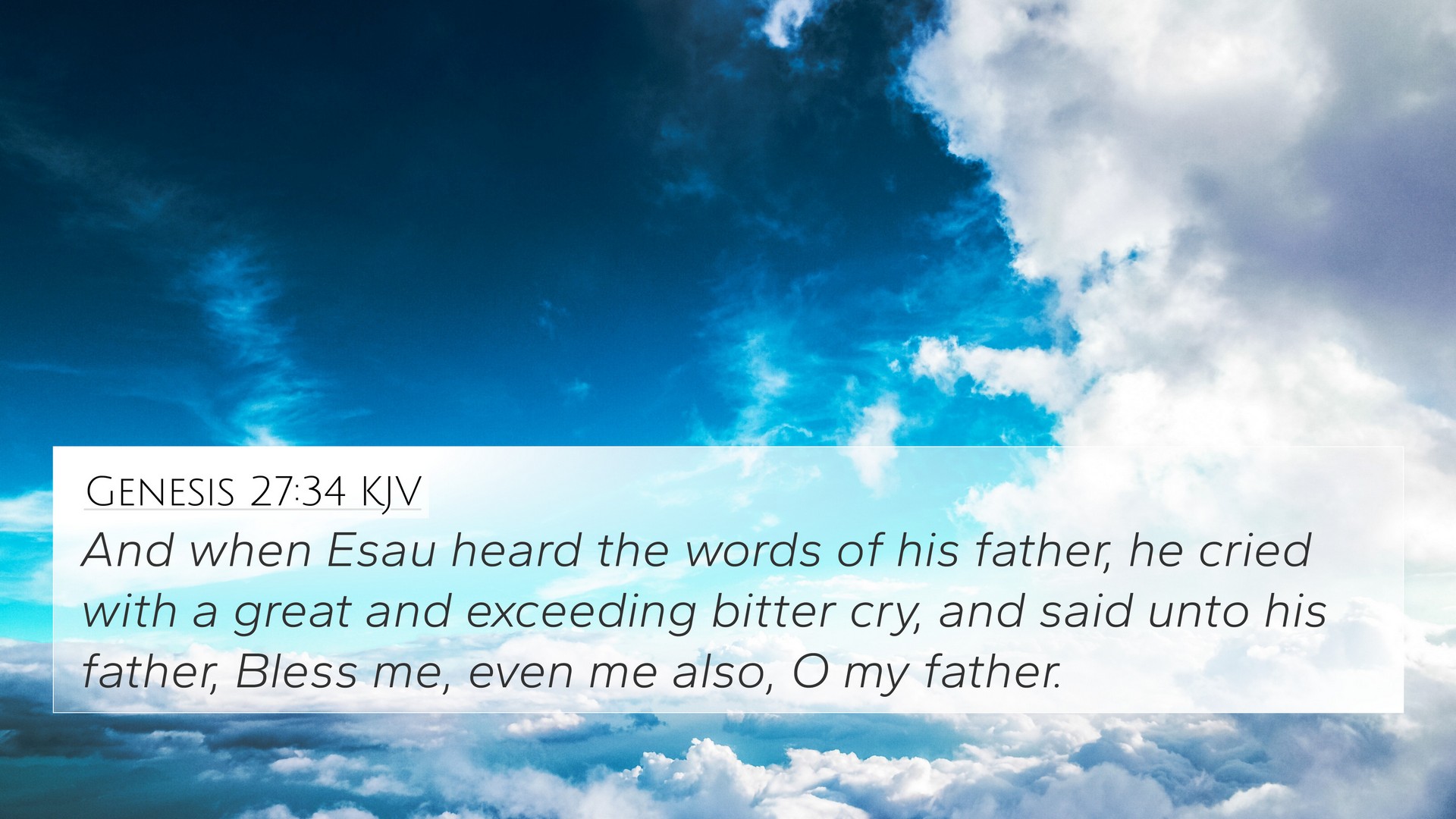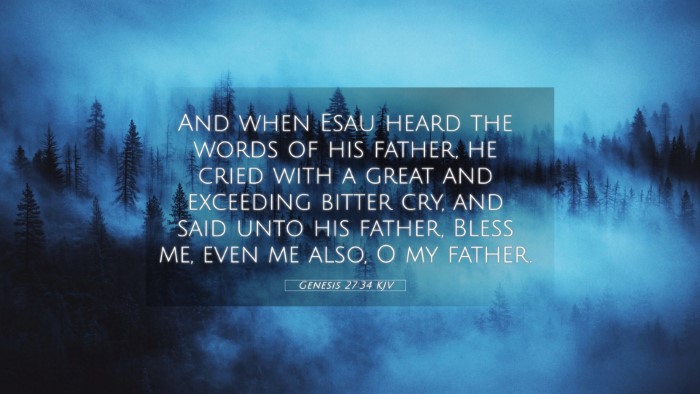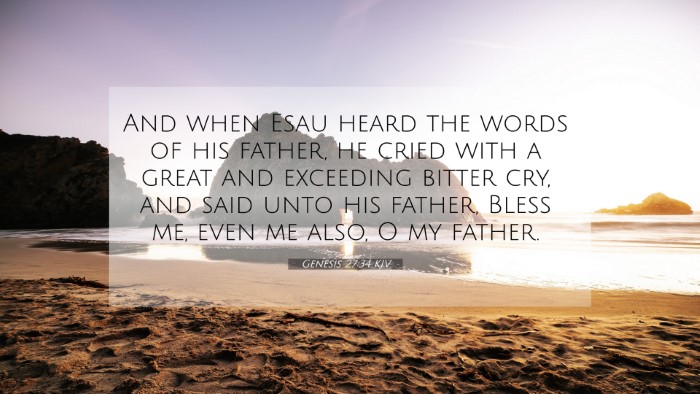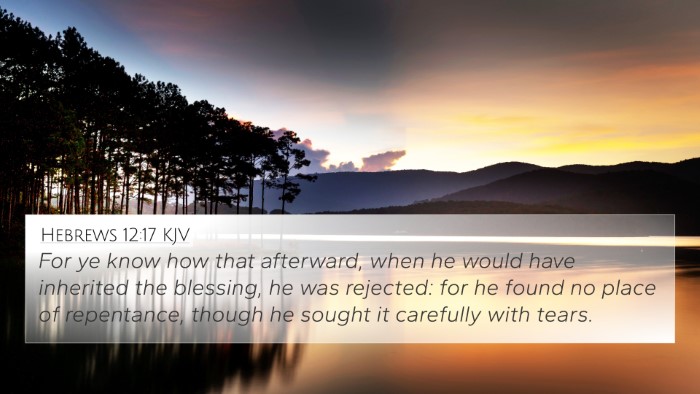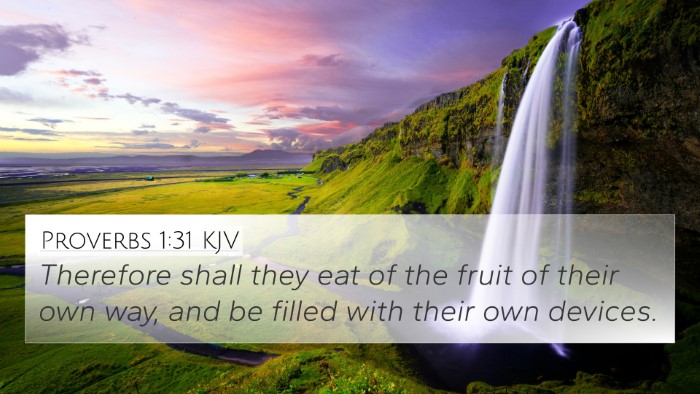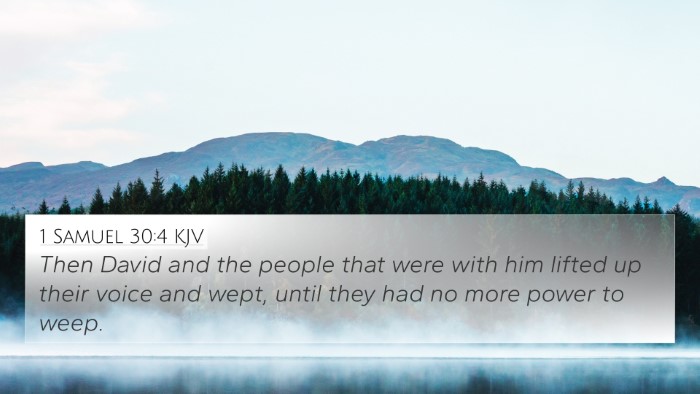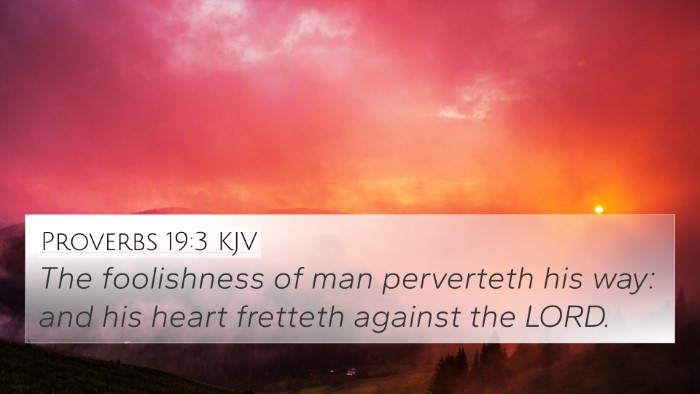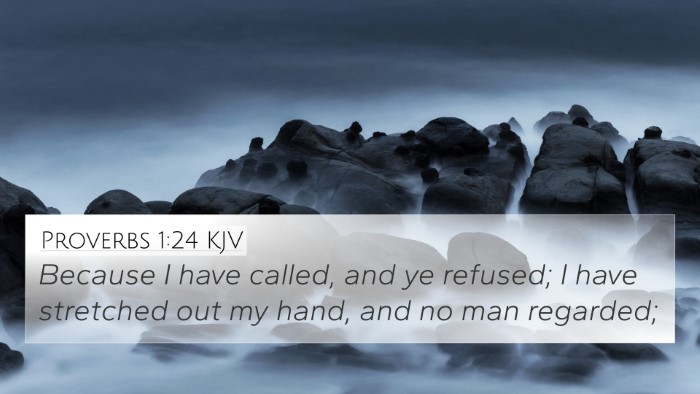Understanding Genesis 27:34
Verse: "When Esau heard the words of his father, he cried with an exceedingly great and bitter cry, and said to his father, 'Bless me, even me also, O my father!'" (Genesis 27:34)
Literal Interpretation
This verse captures the moment when Esau realizes that he has been deceived of his father's blessing by his twin brother Jacob. Esau's intense reaction indicates not just an emotional response but also highlights the gravity of losing a paternal blessing in the cultural context of the time.
Emotional Significance
According to Matthew Henry, Esau's cry represents the depth of his distress. He felt not only robbed of the blessing but also the love and favor that it signified. The blessing was seen as a spiritual inheritance and played a critical role in familial relationships.
Theological Insights
Albert Barnes points out that this incident unveils the seriousness with which blessings were viewed in biblical times. It sets a precedent for discussions on divine favor and familial relationships throughout the Bible. Esau's plea is representative of a broader theme of loss and desperation.
Symbolism of the Blessing
Adam Clarke notes that blessings in the Old Testament were not merely verbal promotions; they had practical implications that extended into the lives of future generations. Thus, Esau’s need for blessing can also be seen as a quest for identity and providence in a world where divine approval was paramount.
Inter-Biblical Dialogue
This verse is connected to the broader narrative of Jacob and Esau and invites comparisons with New Testament themes, especially about grace and predestination. The emotional intensity of Esau's plea echoes sentiments later expressed in the New Testament about seeking God's favor.
Cross-References and Connections
Genesis 27:34 has multiple connections to both the Old and New Testaments that help to unravel its meaning:
- Hebrews 12:16-17: Discusses Esau's loss of blessing and the implications of his choices.
- Genesis 25:29-34: Details the initial exchange of Esau's birthright for a bowl of stew, highlighting the theme of impulsivity.
- Malachi 1:2-3: Speaks about God's love for Jacob and hatred for Esau, illustrating divine elect and rejection.
- Romans 9:13: Quotes Malachi to discuss God's sovereign choice between Jacob and Esau.
- 1 Samuel 16:7: Highlights God's criteria for choosing whom to bless, in contrast to human expectations.
- Genesis 28:1-4: Mentions Isaac blessing Jacob with a similar blessing, emphasizing blessing's continuity.
- John 1:11-12: Discusses acceptance and rejection, paralleling Esau's plight with Christ's rejection by His own.
- Proverbs 10:22: “The blessing of the Lord, it maketh rich,” which contextualizes the importance of divine blessing.
- Matthew 7:7-8: Speaks to the nature of seeking, underscoring Esau's desperate plea for a blessing from his father.
- James 1:17: Discusses the nature of God as the giver of perfect gifts, contrasting the flawed human relationships seen in Genesis.
Thematic Analysis
The theme of brotherly rivalry, deceit, and the quest for blessing runs throughout the Bible. This verse serves as a springboard to delve into concepts like grace, legitimacy, and divine favor.
There parallels between Esau's cry for blessing and the New Testament's emphasis on grace, where believers are positioned to receive a blessing from God that transcends earthly connections.
Tools for Further Study
For those wishing to explore the depths of this verse and its connections, various tools can assist:
- Bible Concordance: A valuable resource for locating cross-references quickly.
- Bible Cross-Reference Guide: Facilitates understanding thematic connections between scripture.
- Cross-Reference Bible Study: Encourages deeper examination of linked verses for contextual understanding.
- Comprehensive Bible Cross-Reference Materials: Ideal for extensive study and sermon preparation.
- Bible Chain References: Useful for tracing thematic or narrative threads through Scripture.
Conclusion
Genesis 27:34 is a poignant verse that encapsulates key themes of loss, identity, and the search for divine blessing. Understanding it in light of other verses enriches one’s comprehension of biblical narratives and theological principles. By closely examining the cross-references and connecting themes, you can uncover profound insights relevant to both the Old and New Testaments.
